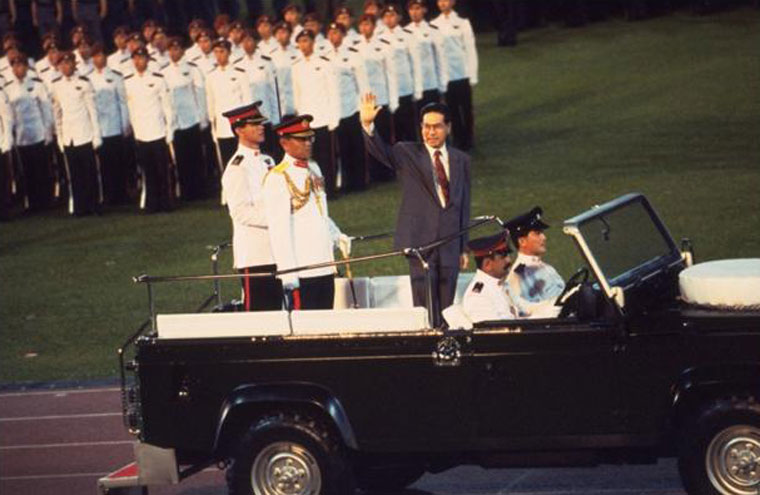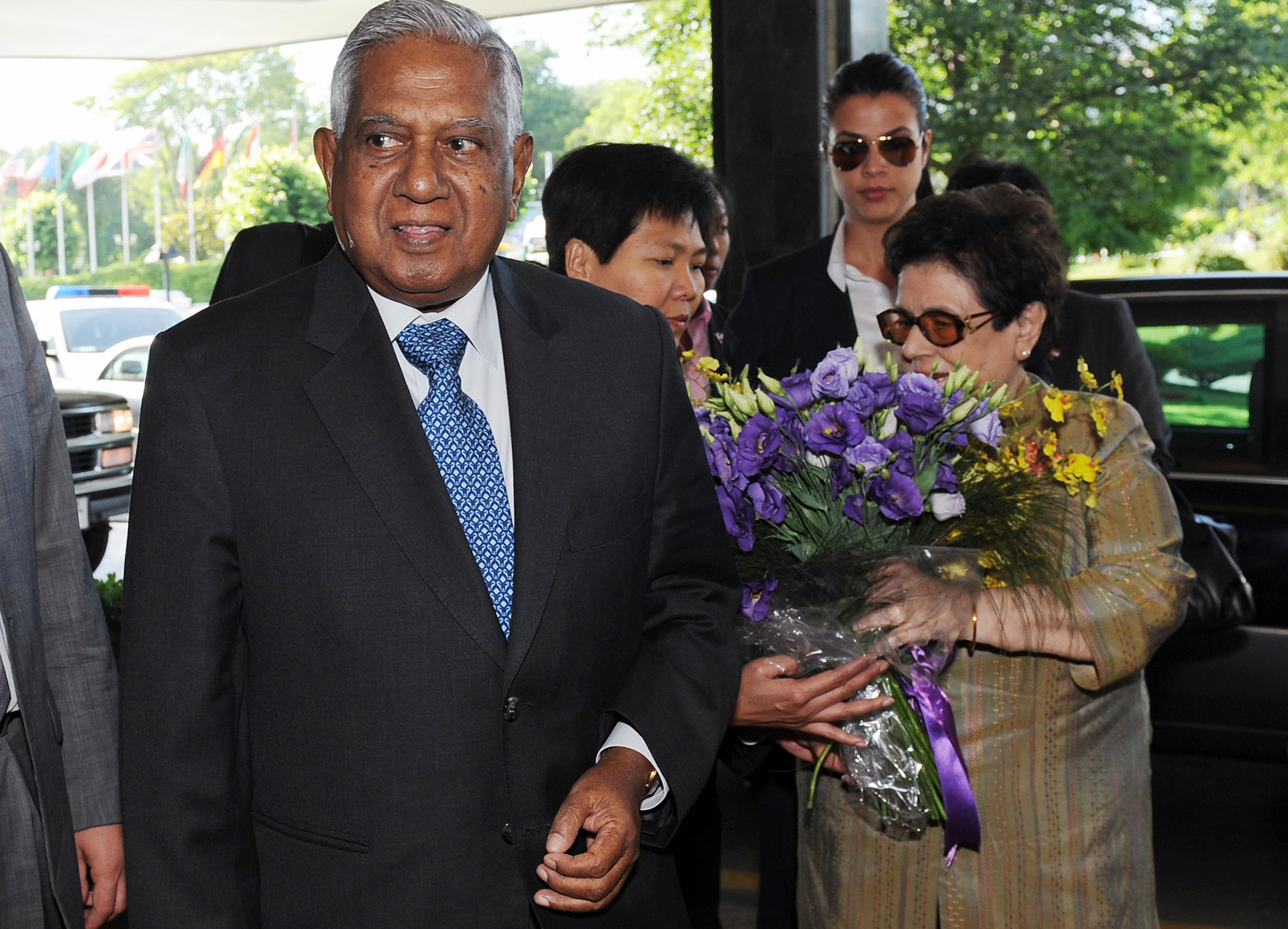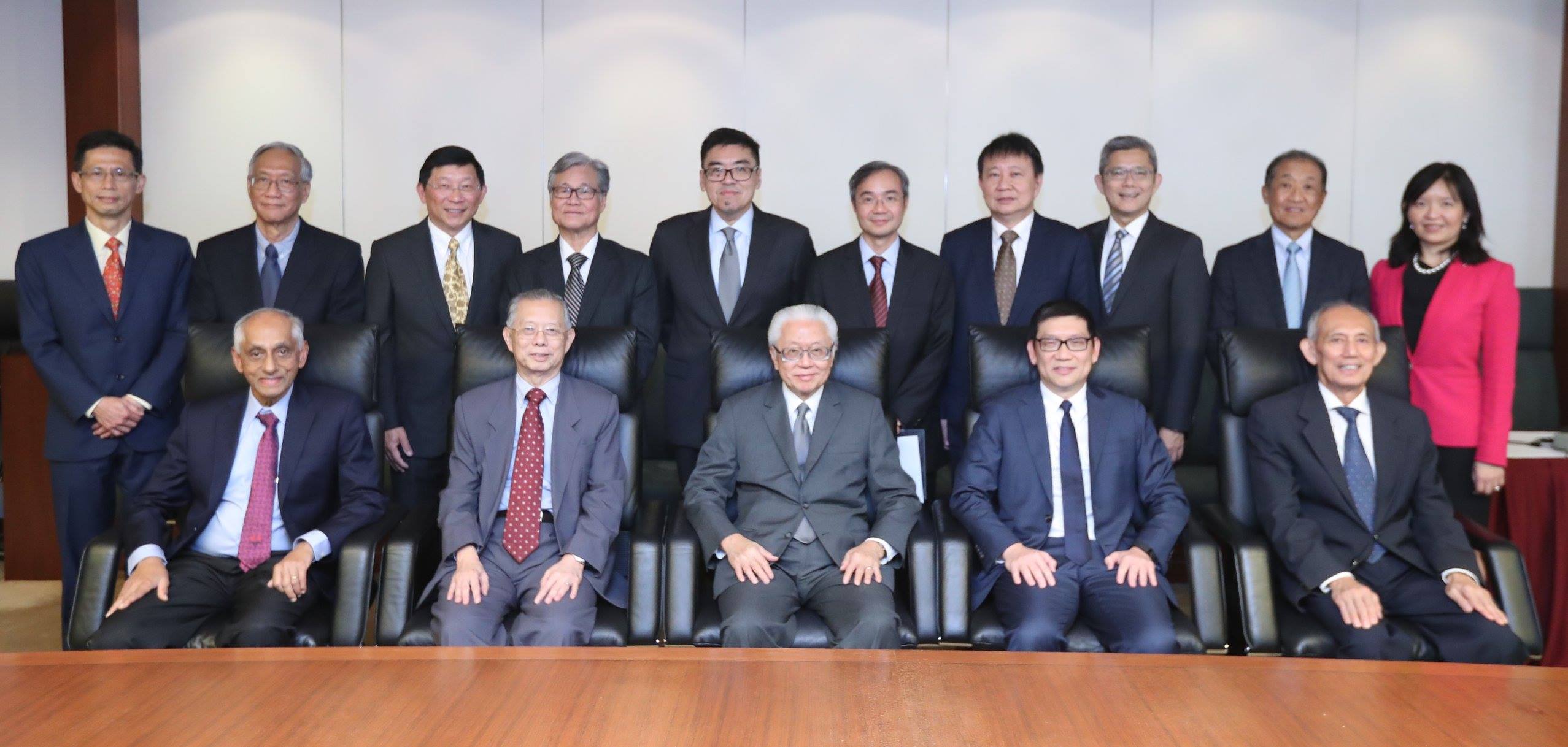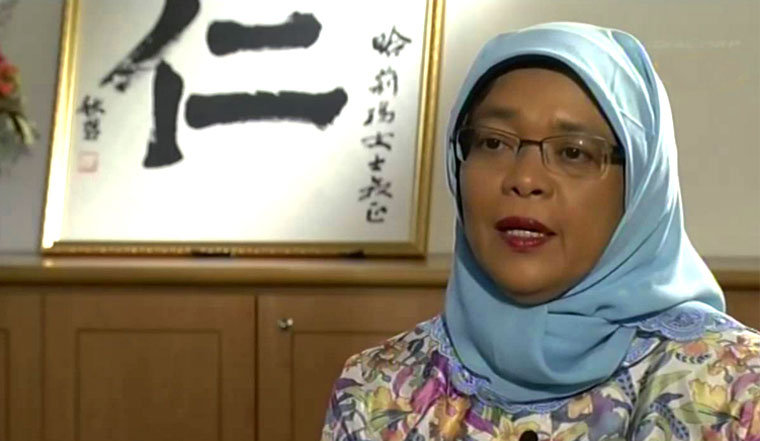In the United States, the campaign for 2016's presidency started nearly two years (or 597 days to be specific) before Election Day.
And in Singapore?
Two months to the September deadline for the Presidential Election 2017 and we still do not even know who the candidates are.
The thing is, the Singapore government seldom leaves things to chance.
Especially for a position and issue as politically important as the Elected Presidency (EP).
In fact, history reveals the government's active involvement in persuading reluctant candidates to run for president.
1993 Presidential Election: Ensuring competition
 Ministry of Information and the Arts Collection, courtesy of National Archives of Singapore
Ministry of Information and the Arts Collection, courtesy of National Archives of Singapore
In 1993, the late Ong Teng Cheong, former Deputy Prime Minister and nominated by the National Trades Union Congress, was the front-runner.
In fact, senior PAP leaders -- Goh Keng Swee and Finance Minister Richard Hu -- had to persuade former Accountant-General Chua Kim Yeow to run against Ong, who became the eventual winner (58.69 percent).
In the book Presidency (2015), Thio Li-ann noted that the stringent criteria of the Presidential Elections Committee (PEC) "led to a situation where the two candidates, Ong and Chua, were declared by the PAP to be acceptable".
1999 and 2005 Presidential Election: A midnight call from LKY and two walkovers
 Bulent Kilic, AFP, Getty Images
Bulent Kilic, AFP, Getty Images
Distinguished diplomat S R Nathan received a call late at night from the late Lee Kuan Yew (LKY), who was then Senior Minister.
"It was 11.00pm and we had retired to bed. The phone rang, and I picked it up... It was Senior Minister Lee Kuan Yew.
The conversation was rather odd. He asked how my children were... all normal small-talk, but not a conversation you expect to have with the senior minister late at night. Finally he asked if I had time to go to see him the next day". -- S R Nathan, An Unexpected journey: Path to the Presidency (2011)
LKY called him again after their meeting in the Istana to confirm that the government had decided that he should stand. In fact, LKY told the late President Nathan that "if race turned out to be an issue, he undertook to come out and campaign on my behalf".
S R Nathan was elected unopposed in 1999 and 2005, as other candidates were not deemed eligible by the PEC.
Presidential Elections 2011: Tony Tan said yes, George Yeo bowed out
 Source: Tony Tan Facebook
Source: Tony Tan Facebook
Many of us can recall PE2011 and the contest between the four "Tans".
The election turned political as Singaporeans were fresh with the memories of the conclusion of the watershed General Election 2011 as the ruling PAP lost its first GRC.
While many did not know was that the government is also pro-active in ensuring that there is a qualified candidate to stand for PE:
In his 2015 book, George Yeo on Bonsai, Banyan and the Tao, former Foreign Minister George Yeo highlighted the involvement of Prime Minister Lee Hsien Loong:
"In the subsequent weeks, pressure built up within and outside the PAP for me to run for the elected Presidency in August. This was despite my having indicated earlier that I thought myself temperamentally unsuited for the responsibility.
Initially, Prime Minister Lee Hsien Loong supported my candidacy but when Dr Tony Tan, former Deputy PM and PAP Chairman, indicated his willingness to run with the PAP’s support, I bowed out.
I would only have contested out of duty, not ambition. It should not be an exercise in self-justification."
Many "noes", but no "yes" yet
Mohamed Salleh Marican, the chief executive officer of Second Chance Properties, has thrown his name into the hat.
But Salleh does not appear to be the candidate by the government.
First, the candidate supported by the government leaders usually fulfills the criteria set by the PEC.
According to Today, Salleh does not automatically qualify for the company with at least S$500 million shareholder equity criteria.
This is because his company’s shareholder equity registered between S$254.3 million and S$263.25 million over the last three financial years.
Second, none of the government leaders have come out to support him yet.
In fact, what the Malay government leaders, both current and former, are doing now is to declare that they are not standing for PE.
Communications and Information Minister Yaacob Ibrahim had to patiently address the same questions again from the the mainstream media on May 31, when they asked him if he wants to be the president of Singapore.
Which he said "not interested" and "no" again.
This of course leaves us with Speaker of Parliament Halimah Yacob.
Speaker Halimah last addressed the issue of the likelihood of her candidacy in December, when she was the poster woman of the newly revamped The New Paper:
"I think it is still a long way off...At this moment, I would not want to comment... To me, it doesn't matter what capacity you serve in.
The most important thing is that you're serving from your heart, and that you're also serving the people and Singapore."
It's not a long way off now, for Madam Halimah to confirm with Singaporeans whether it is a yes or no.
Maybe she wants to surprise us.
Or maybe it's the government who is keeping us in suspense.
But we will be very surprised if the government decides to leave this important role to second chance chance this time.
If you like what you read, follow us on Facebook and Twitter to get the latest updates.
If you like what you read, follow us on Facebook, Instagram, Twitter and Telegram to get the latest updates.
